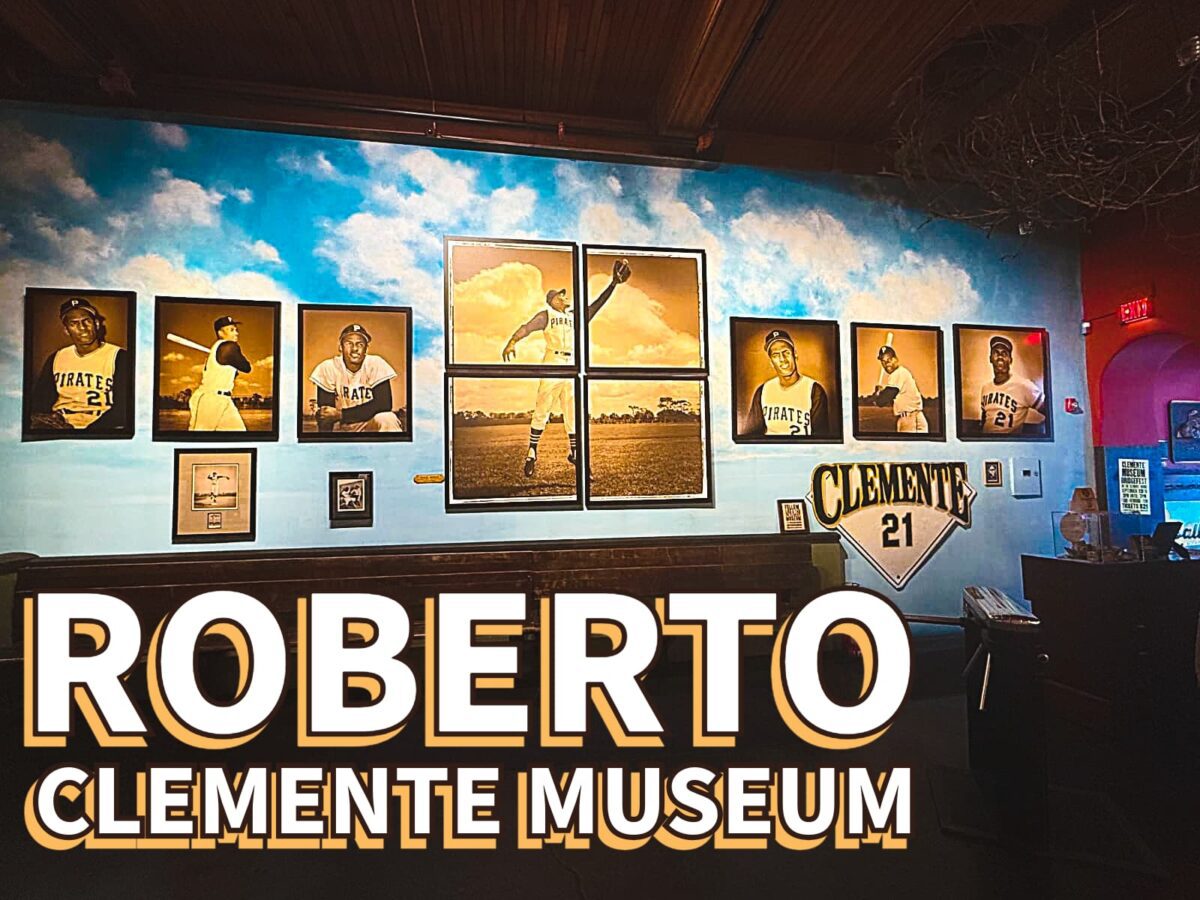



PITTSBURGH – Roberto Clemente remains a legend in Pittsburgh and around the world. His legacy, especially within the Latino community, endures. Major League Baseball marks Roberto Clemente Day every September 15, now in its 24th year.
Earlier this month World Baseball Network visited the Roberto Clemente Museum in Pittsburgh and spoke with tour guide Gary Euler, who saw Clemente play in person at Forbes Field.
“He has been described as a beautiful athlete and I fully agree with that,” Euler said. “When I was a kid my dad would get us tickets in the right field grandstand at Forbes Field because that’s where he was. You couldn’t take your eyes off him. He had a regal quality. A smooth athlete who played with flair and elan. He was obviously great.”
Euler remembered how Clemente’s different style wasn’t always accepted at first. “In the fifties he wasn’t yet the star he became. Some people called him a hot dog. But in a blue collar town like Pittsburgh if you show you care and play hard you become popular. That’s what happened with Roberto.”
“Clemente had the best right field arm I’ve ever seen,” Euler said. “There were others — Dave Parker and Vlad Guerrero — but if you want proof watch the 1971 World Series highlights. Look at the two throws he made at Memorial Stadium. That should settle the debate.”
That 1971 Series carried another layer of significance. The Pirates became the first Major League club to start an all-minority lineup with African American and Latino players filling every position.
“I think it meant a lot to Roberto,” Euler said. “They didn’t even realize it at first. Al Oliver told me he was on the bench when Dave Cash nudged him and said look around it’s all brothers out here. They were out there to win and they made history.”
Euler connected Clemente’s work ethic with the city itself. “If you exhibit those qualities in a town like Pittsburgh you become a star,” he said. “If you go to a Pirates game today you still see the majority of jerseys with the number 21 at PNC Park.”
The Pirates retired Clemente’s number 21 after his death in a plane crash on December 31 1972 while he was delivering earthquake relief supplies to Nicaragua. To this day, 21 is the most common jersey seen in Pittsburgh.
Euler stressed that Clemente’s humanitarian nature defined him as much as his on-field brilliance. “I would love to see his number retired across baseball,” Euler said. “He meant as much to the Latino community as Jackie Robinson meant to the African American community.”
Clemente’s acts of kindness were often unpublicized. Euler shared that he visited the Pittsburgh School for the Blind and Children’s Hospital and insisted on no publicity. “That’s who he was.”
Born in Puerto Rico, Clemente spent many winters with the Cangrejeros de Santurce. He shared that stage with legends such as Willie Mays. Both men remain tied for the most Gold Gloves ever won by an outfielder with 12.
More than fifty years after his final game Clemente’s name still stands for excellence and service. A beautiful athlete. A blue-collar work ethic. A humanitarian spirit that needs no spotlight. His reach extended far beyond the diamond, and his impact remains just as powerful today.